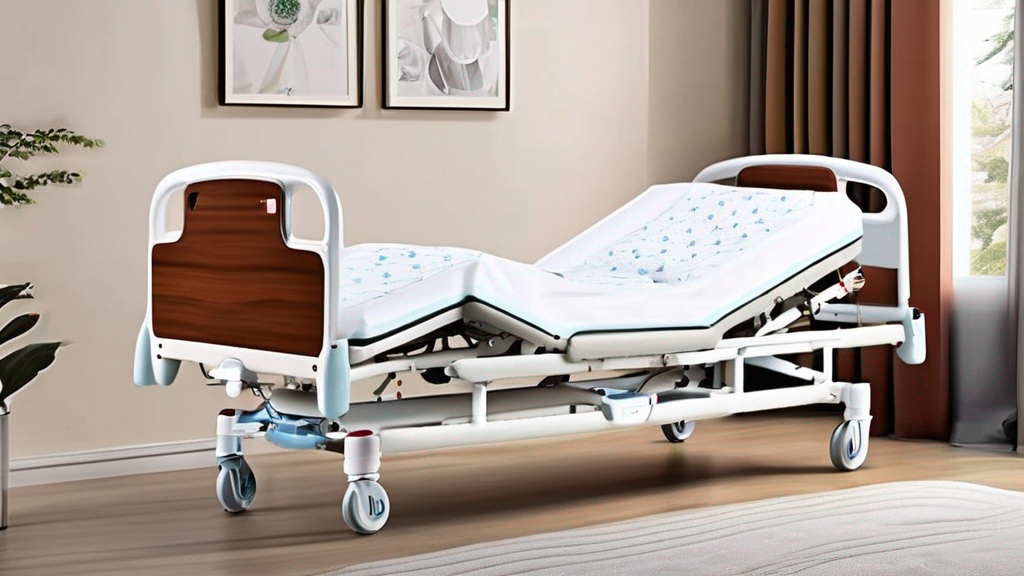Table of Contents
Why Proper Disposal of Hospital Beds is Essential
Frequently Asked Questions (FAQ)
Introduction
Disposing of old hospital beds might seem straightforward, but it requires careful consideration of both environmental and ethical factors. As healthcare facilities upgrade their equipment, it’s essential to handle the old beds responsibly. This article will guide you through the best practices for disposing of old hospital beds, ensuring minimal environmental impact and adherence to ethical standards.
Why Proper Disposal of Hospital Beds is Essential
Hospital beds are complex pieces of equipment containing materials that can be hazardous if not disposed of correctly. Improper disposal can lead to environmental pollution and pose significant health risks. Additionally, ethically, it’s important to ensure these beds don’t end up in landfills, contributing to waste and harming the environment.
Best Practices for Disposal
Donation to Developing Countries
One of the most impactful ways to dispose of old hospital beds is through donation. Many developing countries face severe shortages of medical equipment. Donating beds can provide critical support to hospitals in need, improving healthcare access and patient outcomes. Organizations like Project C.U.R.E. and MedShare specialize in collecting and distributing medical supplies to underserved communities worldwide.
Key Considerations:
- Ensure the beds are in good working condition.
- Comply with the receiving country’s import regulations.
- Partner with reputable organizations to ensure beds reach their destination.
Recycling and Repurposing
Recycling is another excellent option for disposing of old hospital beds. These beds often contain recyclable materials like metal, plastic, and electronics. By breaking down the beds into their component parts, these materials can be repurposed, reducing waste and conserving resources.
Key Considerations:
- Partner with certified e-waste recyclers for electronic components.
- Follow local recycling guidelines for different materials.
- Consider creative repurposing projects, such as converting bed frames into garden furniture or other functional items.
Reselling and Refurbishing
If the beds are still in good condition but no longer meet the standards of the original healthcare facility, reselling or refurbishing can be viable options. Many companies specialize in refurbishing medical equipment, ensuring it meets current safety standards before reselling it at a lower cost.
Key Considerations:
- Ensure that refurbished beds meet all safety and regulatory standards.
- Offer beds to smaller healthcare facilities or home care providers with budget constraints.
- Provide warranties or guarantees to assure buyers of the beds’ quality.
Environmental Considerations
When disposing of hospital beds, consider the environmental impact. Improper disposal can lead to pollution and unnecessary waste. Here are some key environmental considerations:
Reducing Carbon Footprint
Transportation and processing of old beds can contribute to greenhouse gas emissions. To minimize the carbon footprint:
- Opt for local disposal or recycling options when possible.
- Use energy-efficient transportation methods.
- Work with environmentally conscious disposal partners.
Hazardous Material Management
Hospital beds may contain hazardous materials such as batteries and electronic components. Improper disposal of these materials can lead to soil and water contamination. Ensure that:
- Hazardous materials are removed and disposed of according to local regulations.
- Partner with certified hazardous waste management companies.
Ethical Considerations
Ethics play a crucial role in the disposal process. It’s essential to ensure that old hospital beds are disposed of in a manner that aligns with ethical standards, promoting sustainability and social responsibility.
Ensuring Fair Distribution
When donating beds to developing countries, ensure they reach those in need. Work with reputable organizations to avoid the misuse or resale of donated equipment. Ensure transparency and accountability in the distribution process.
Respect for Local Communities
Involving local communities in the disposal or recycling process can provide economic benefits and promote sustainability. Collaborate with local recyclers or refurbishers to create jobs and support the local economy.
Conclusion
Disposing of old hospital beds is a multifaceted issue that requires careful consideration of environmental and ethical factors. By opting for donation, recycling, or refurbishing, healthcare facilities can ensure these beds are disposed of responsibly. It’s not just about getting rid of old equipment; it’s about making a positive impact on the environment and society.
Remember, every step towards responsible disposal helps create a sustainable future. Let’s make the world a better place, one hospital bed at a time!
Frequently Asked Questions (FAQ)
Q: What are the best practices for disposing of old hospital beds?
A: The best practices include donating to developing countries, recycling and repurposing materials, and reselling or refurbishing the beds.
Q: Why is proper disposal of hospital beds important?
A: Proper disposal is essential to prevent environmental pollution, manage hazardous materials, and ensure that the beds do not end up in landfills.
Q: Can old hospital beds be donated?
A: Yes, many organizations accept donations of hospital beds and distribute them to developing countries where medical equipment is needed.
Q: How can recycling hospital beds benefit the environment?
A: Recycling helps reduce waste, conserve resources, and prevent pollution by repurposing materials from old hospital beds.
Q: What are the ethical considerations when disposing of hospital beds?
A: Ethical considerations include ensuring fair distribution, respecting local communities, and promoting sustainability through responsible disposal practices.
- How Bedridden Seniors Can Exercise Safely: Rehabilitation with an Electric Hospital Bed
- How to Prevent Bedsores: From Electric Beds to Daily Care Essentials
- Sleep Tips for Heart and Diabetes Patients: How an Electric Adjustable Bed Can Make a Difference
- Creating the Ideal Sleep Environment: Bedding, Lighting, and Temperature
- Improving Back Pain: How Electric Hospital Beds Help Reduce Nighttime Discomfort


